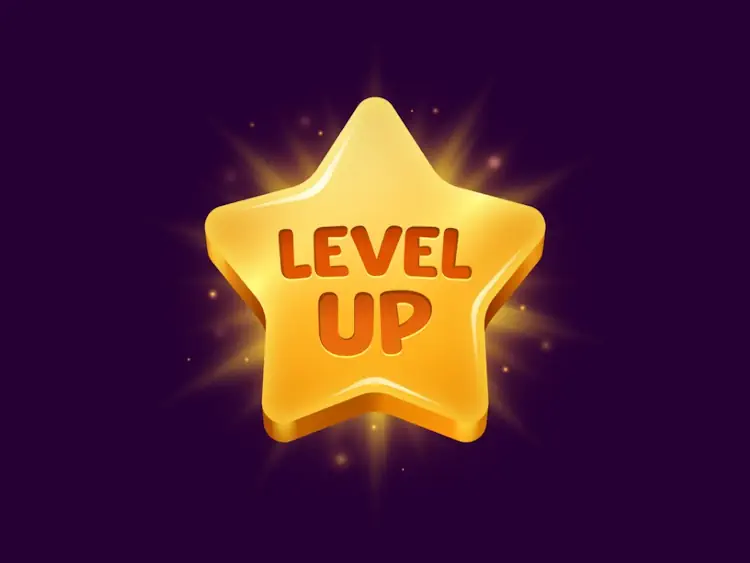The allure of achievement and recognition is deeply ingrained in human nature. From childhood video games to professional milestones, the thrill of earning rewards, progressing through levels, and receiving public acknowledgment drives motivation and engagement. In recent years, businesses and social platforms have leveraged this intrinsic human drive through gamification—applying game-like elements to everyday experiences to enhance participation and efficiency.
Consider platforms like LinkedIn, which assigns profile completion levels such as "All-Star" to encourage user engagement, or Duolingo, a popular language learning app that uses badges, crowns, and streaks to encourage users to progress through levels.
This same approach holds immense potential in higher education, particularly in alumni engagement. Universities can harness gamification to transform how they connect with their graduates, making interactions more compelling, rewarding, and—most importantly—impactful. One of the most powerful applications? Alumni fundraising.
The Power of Gamification in Alumni Fundraising
Gamification can transform alumni engagement platform fundraising by making the process more engaging and rewarding for alumni. Here are some key ways to leverage alumni engagement platform gamification for better fundraising outcomes:
Make Every Donor Feel Special
- Leaderboards: Display leaderboards showing top donors and recent contributions. This creates a friendly competition and recognition among alumni.
- Personalized Thank You Messages: Use the platform to send personalized thank you messages and digital badges to donors, recognizing their contributions.
Show Who Else Donated
- Real-Time Updates: Display real-time updates of donations on the alumni engagement platform fundraising page. This transparency encourages others to donate as they see their peers contributing.
- Social Sharing: Allow donors to share their contributions on social media, creating a ripple effect of giving.
Thank Donors
- Automated Thank You Videos: Follow the example of Rensselaer Polytechnic Institute's Pi Day campaign, where students created on-demand thank you videos for all donors. This personal touch can be automated through some platforms.
- Virtual Badges and Certificates: Award virtual badges and certificates that donors can display on their platform profiles or share online.
Show Impact
- Progress Bars: Use dynamic progress bars to show the campaign's progress towards its goal. This visual representation of impact motivates alumni to contribute and see the collective effort grow.
- Impact Stories: Share stories of how donations have made a difference. Include testimonials from scholarship recipients or project beneficiaries, highlighting the real-world impact of alumni generosity.
Enhancing Engagement Beyond Fundraising
Alumni engagement platform gamification can also be applied to various aspects of alumni engagement, not just fundraising. Here are some examples:
Event Participation
- Points for Attendance: Award points to alumni for attending events, participating in webinars, or joining virtual reunions. Accumulating points can lead to rewards or exclusive access to special events.
- Challenges and Quizzes: Create fun challenges or quizzes related to the institution's history, notable alumni, or current events. Offer rewards for high scores or completion.
Mentorship Programs
- Mentor Badges: Recognize alumni on the platform who participate as mentors with special badges or titles. This not only encourages participation but also showcases their commitment to giving back.
- Mentorship Milestones: Set milestones for mentorship activities, such as completing a certain number of sessions or achieving specific goals. Award badges or points for each milestone reached.
Networking and Community Building
- Profile Completion Rewards: Just like LinkedIn, encourage alumni to complete their alumni engagement platform profiles by offering rewards for different levels of completion. This ensures richer data and more meaningful connections within the platform.
- Discussion Participation: Award points for contributing to discussions, posting articles, or engaging with peers. This fosters an active and vibrant community.
The Impact of Gamification on Institutions
Implementing gamification in an alumni engagement platform can have significant positive impacts on institutions:
- Increased Engagement: Gamification makes interactions more enjoyable and rewarding, leading to higher levels of alumni participation in various activities.
- Enhanced Fundraising: By making the giving process fun and emotionally rewarding, institutions can boost donation rates and foster a culture of philanthropy.
- Stronger Community Connections: Gamification encourages alumni to connect, collaborate, and support each other, creating a tighter-knit community.
- Improved Data Collection: As alumni engage more with the platform, institutions can gather valuable data on their preferences, behaviors, and interests, enabling more targeted and effective outreach.
- Long-Term Loyalty: Alumni who feel recognized and valued are more likely to maintain a long-term relationship with their alma mater, contributing to its success in various ways.
Conclusion: A New Era of Alumni Engagement
Gamification has the power to revolutionize alumni engagement by fostering deeper connections, enhancing participation, and driving meaningful contributions. By integrating game-like mechanics into an alumni engagement platform, institutions can create a dynamic, interactive experience that inspires alumni to give, connect, and stay involved in their alma mater’s success. The future of alumni engagement is immersive, engaging, and rewarding—embrace gamification today and witness the transformation.
To learn how you can make your fundraising campaigns more compelling and engage your alumni like never before, visit 360Alumni to schedule a demo of our alumni engagement platform and learn what’s on our gamification roadmap!
If you liked this article, you may also like:
- 2024 in Review: Alumni Engagement Trends and What to Expect in 2025
- Automating Alumni Management: How to Get Your Team On Board Today
- Driving Alumni Engagement: The Role of Alumni Ambassadors
For more information on related topics, be sure to connect with us!
.svg)


